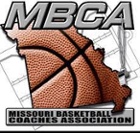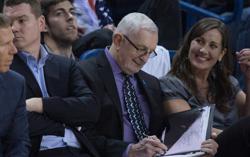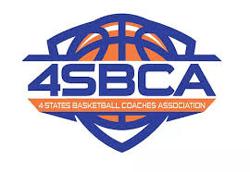The MBCA is pleased to welcome Nancy Fahey who will speak at the 2018 clinic in Columbia.
Nancy Fahey has risen to the top level and is out to help Illinois to do the same
Article by Mechelle Voepel espnW.com
Illinois' Nancy Fahey was used to seeing some of the bigger names in women's basketball coaching while she was watching television. Now that she's coaching against them -- such as Maryland's Brenda Frese in the teams' Big Ten opener Thursday -- Fahey jokes, "I almost feel like I should go ask them for an autograph."
Or maybe it should be the other way around. Fahey, after all, is in the Women's Basketball Hall of Fame and has won more national championships (five) than anyone in the Big Ten. Those came during her 31 years at Division III Washington University in St. Louis, where she was 737-133.
Fahey, who turned 59 in November, is in her first season in Division I. She was hired in March to replace Matt Bollant, and her task is a tall one: try to make Illinois a competitive program again. The Illini have not been to the NCAA tournament since 2003, when Theresa Grentz was still coach, and their last postseason appearance was in the 2013 WNIT.
The Illini currently are 9-5 as they head into Big Ten action. They finished non-conference play by winning four straight before falling at No. 16 Missouri 72-55 on Dec. 22. There was a good-sized crowd of 4,630 present that Friday afternoon at Mizzou Arena. The atmosphere resonated with Fahey, who turned to her assistants before the game and said, "Well, this is the big time, isn't it?"
"I know this isn't the conventional path most people take," Fahey said of moving to Division I so late in her career. "But we're going to do this minute by minute, day by day. I told the kids, 'I'm stubborn, and it's not going to stop.' Our biggest thing is learning how to fight and compete. Changing a culture has its challenges, but the team has done a good job of being open to it."
One of the first things Fahey did was get to know her players.
"When she got here, she was very quick to get us all into meetings, just one-on-one with her," junior forward Alex Wittinger said. "I thought that was cool, because it showed she was willing to really get to know everybody well. We talked about everything -- the previous season, what she wanted from us, our lives in general.
All five starters from last year, including sophomore guard Brandi Beasley, are back for Illinois this year. Courtesy Illinois Athletics
"In a way, it's like we're all freshmen because it's a whole new system and style of coaching. It was a relatively steep learning curve at the beginning, but it's definitely been positive."
Illinois women's basketball history, to be frank, doesn't have all that many high points. The Illini made the NCAA tournament field just three times before Grentz took over in 1995. Her best days with Illinois came earlier in her 12-year tenure, as the Illini reached the Sweet 16 in 1997 and '98. Grentz resigned in 2007, having made five NCAA tournament trips.
Former Iowa player Jolette Law, who'd been an assistant for C. Vivian Stringer at Rutgers, then took over at Illinois. She was there for five seasons, making the WNIT in two of them. But her overall record was 69-93, and the Illini never finished higher than eighth in the Big Ten under Law.
Next was Bollant, who came to Illinois in 2012 after much success at Green Bay, where he was 148-19. His first year at Illinois was his best, going 19-14, tying for fifth in the Big Ten, and making the WNIT quarterfinals. But things unraveled for Bollant, who along with assistant Mike Divilbiss faced allegations in 2015 of what some players called a "racially abusive" atmosphere.
Divilbiss resigned, and Bollant denied the charges. Illinois said it found no wrongdoing in an investigation, but settled a lawsuit in 2016, agreeing to pay $375,000 to be split among seven players. Bollant stayed one more year after that settlement, but the program continued to struggle, going 9-22 overall and 3-13 in the Big Ten. Illinois athletic director Josh Whitman fired Bollant in March, just days after he also fired Illini men's basketball coach John Groce.
So that has been the state of the Illini women for the past decade: largely non-competitive in the Big Ten -- a combined 49-121 league record under Law and Bollant -- let alone nationally.
Why would Fahey, who had three decades of excellence at Division III, decide to captain an Illini ship that for so long has been going nowhere? Because she believed she could do it. She was excited by the challenge. And she previously worked for Whitman at Washington University.
As she said, this is not a career route seen often. There are some well-known examples of women's basketball coaches who made big leaps successfully to Division I, such as Oklahoma's Sherri Coale, who went from coaching Norman High School to taking over the Sooners in 1996. She has been to the Women's Final Four three times.
More recently, Scott Rueck went from Division III George Fox University in Oregon -- where he had been a head coach for 14 years, winning the 2009 NCAA title -- to Oregon State. The Beavers had made just five NCAA tournament appearances before Rueck. He has led them to the tournament the past four years, making the Women's Final Four in 2016. The Beavers are currently 9-2 and ranked No. 17.
Not surprisingly, Fahey said after getting the Illinois job, one of her first phone calls was to Rueck: "He was a great resource."
Rueck could understand the scope of what Fahey was facing. Rueck's predecessor at Oregon State, LaVonda Wagner, was fired after five years due to multiple player transfers and allegations of an abusive culture. Rueck had to rebuild basically from scratch, with just five players on the roster when he got the job.
Fahey fortunately didn't have a bare cupboard at Illinois; all five starters returned from 2016-17, and nine letter-winners overall. That included Wittinger and sophomore guards Brandi Beasley and Petra Holesinska, the Illini's three leading scorers from last season.
But Rueck was 40 when he took over at Oregon State. Fahey is 19 years older as she faces trying to resuscitate the Illini program. She's doing that with both optimism and realism. Division I is different from Division III, in recruiting obviously -- D-III doesn't offer athletic scholarships -- and resources and media attention, among other things.
"I'd like to think it's not that different, though, in regard to basketball being basketball," said Missouri's Robin Pingeton, who began as a head coach in NAIA, then became a D-I assistant and later a D-I head coach. "You've got to be able to recruit kids who can play at that next level. But for me, it's about the relationships with the kids, getting the buy-in, and trusting the process.
"You want to build a program the right way. ... It's not an overnight thing. It's brick by brick, keeping your blinders on, and doing what you believe is in the best interest of your program every day."
Fahey already built something successful and long lasting, so she knows what that's like. This is another big challenge. Wittinger, for one, believes the Illini are on the right track.
"I think as long as we continue to do what we're doing and make an upward trend," Wittinger said, "we're getting better. Inch by inch. I think we can be competitive in the Big Ten."





